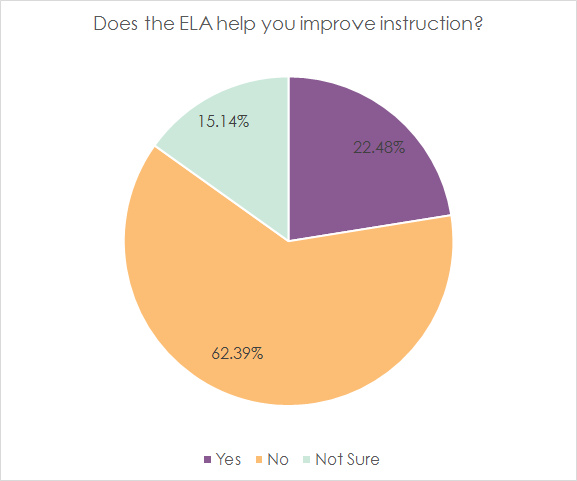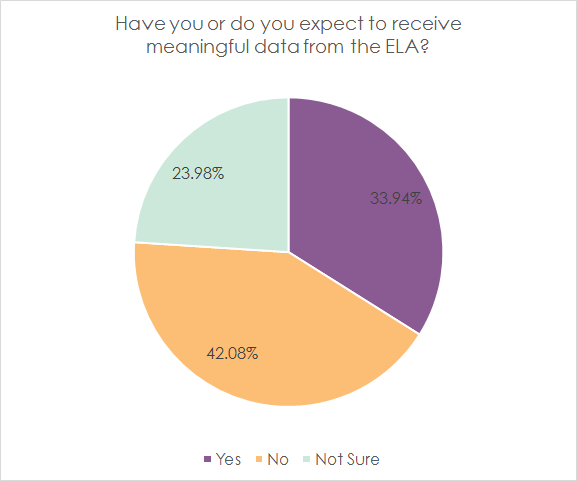138 Hours of Entering Test Data?
That’s what teachers report from a new assessment for pre-k students
A new assessment is being piloted this year for three- and four-year-olds across Maryland. The Early Learning Assessment (ELA) is brought to you by the same folks who developed the Kindergarten Readiness Assessment (KRA), a test which so disrupted the first months of kindergarten that the General Assembly stepped in last year to limit the number of students forced to take it annually.
The ELA is different than the KRA — it’s formative, with data to be collected at three points during the year. It asks pre-k and Head Start teachers to assess up to 72 Skills, Knowledge, and Behaviors (SKBs), assigning students one of nine possible levels. Teachers must gather documentation — whether a written observation, picture, video, or work sample — for each SKB to justify their assessment. In some counties, they need to upload that documentation to a website.
Sound like a ton of work?

Yup, it sure is.
According to Montgomery County pre-k teacher Lauren Moskowitz, who recently testified about the assessment in front of the House Ways and Means Committee:
In Montgomery County, we are responsible for 64 SKBs for each student. I currently have 46 PreK students. 64 SKBs for 46 students three times a year equals 8,832 pieces of documentation to collect, analyze and record. It takes about an hour per child to input the information into the website. This will equate to approximately 138 hours to merely input data into a website. These are hours I could be using to create differentiated lessons for my diverse students, participating in professional development, or connecting with parents on their child’s progress.
Survey Says: ELA Is Problematic for Many Teachers
In late January and early February, MSEA surveyed pre-k and Head Start teachers to find out what they thought about the ELA.
Here’s one eye-popping stat: 43% of teachers said that they’d spent more than two hours of time administering the ELA per student so far this year.
It would be nice if all that time was at least helping teachers improve their instruction. But…

Overall, 62% of teachers think the ELA will not help them improve their instruction; only 22% believe that it will.

More than two-thirds of teachers can’t say for certain that the ELA will give them meaningful data on their students. The majority believe that it won’t.
A Moratorium on the ELA
Frustrated by the feedback they’ve heard on the ELA from teachers, Sen. J.B. Jennings (R-Baltimore and Harford) and Del. Haven Shoemaker (R-Carroll) have introduced House Bill 548/Senate Bill 667. The bill creates a moratorium on the ELA until an audit is performed to understand: the workload impact of the ELA on educators; the time teachers need to spend administering, collecting, and entering data; whether the data helps teachers improve instruction; and more.
Several educators testified in support of the bill at its House hearing on February 14, and several editorial boards have come out in support of it as well.
“To make teachers devote so much time to evaluating students…has an adverse impact on their ability to help them learn,” editorialized the Cumberland News-Times. “The phenomenon of relying upon standardized testing as a means of slaking our thirst for compliance and accountability is already at an epidemic stage, and it seems to be growing. … We must begin reversing this trend, instead of finding new ways to make it worse.”
“When right-wing legislators and the state’s teacher’s union agree on something, it’s probably worth sitting up and taking notice,” wrote the Carroll County Times in a favorable editorial.
Want to add your voice to the pushback on the ELA? Click here to email your legislators, tell them your story, and ask them for a moratorium on the ELA so we can make sure that it’s truly helping pre-k teaching and learning, not getting in the way of it.

